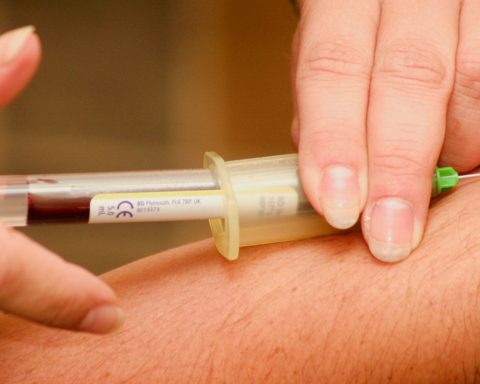 Giles Dawnay is a writer and salaried GP in Leominster, Hereford. His writing can be found at www.gilesdawnay.com and he is on Twitter: @gilesdawnay
Giles Dawnay is a writer and salaried GP in Leominster, Hereford. His writing can be found at www.gilesdawnay.com and he is on Twitter: @gilesdawnay
In The Body Keeps the Score, Bessel van der Kolk makes the disturbing assertion that sexual abuse as a child is a strong predictor of adult obesity. He goes on to look at the impact of a negative childhood in terms of other outcomes of poor health. This depressingly correlates with the Adverse Childhood Experiences score, which asks 10 questions about what the patient has experienced while growing up. Once the score is above 4, the risk of cancer, obesity, heart disease, early death, addiction, suicide, poor mental health, and a litany of other health issues all rocket up. Unsurprisingly, low socioeconomic status is also associated with all of these.
If this is the case, must we stand back and ask ourselves what our function is as doctors or healthcare professionals? In our post-enlightenment, rational, and reductionist understanding of health we tend to treat the patient as they arrive through our door. Of course, we say, the past is relevant (hence the term ‘history’) but then we focus on the biophysical reality of the body in the room. While this has led to great success as medicine ambitiously continues to push back the boundaries of what is possible, paradoxically, there remains the clinical elephant in the room. Are we simply and endlessly treating symptoms or the actual root of disease itself?
“Are we simply and endlessly treating symptoms or the actual root of disease itself?”
In 2018/2019 63% of UK adults had a body mass index (BMI) over 25.1 Of course BMI is not a perfect indicator of obesity, but it is still a start. Can we reliably infer that a large proportion of those have been sexually abused? Probably not, but again, it gives us another frame of reference to consider these patients when we meet them in our wards, clinics, or surgeries. In 2014/2015 the NHS was estimated to spend approximately 10% of its budget treating diabetes.2 Again, not all diabetes is caused by obesity and poor eating habits, but it is still an alarming figure.
As healthcare professionals we can only treat who is in front of us with the mental and physical tools available. But how often do we stop and ask ‘why are the patients the way they are?’ The uncomfortable truth, as is increasingly apparent, is that poor health is often a malevolent symptom of poverty and deprivation. Something that our government seems to ignore as they continue their welfare cuts across the board. It was Rudolf Virchow, the renowned German physician, who said ‘medicine is a social science and politics is nothing else but medicine on a large scale.’
“How much … of our hard and well-intentioned work is no more than an apology … “
Many GPs reading this will, like me, have dealt with patients whose mental health (and perhaps physical) conditions can be traced back to sexual assaults experienced decades ago. What is even more horrifying is that they may only recover the memory of these assaults after doing some intensive psychological work as part of their current presentation. They may have lived most of their lives without conscious memory of what had happened. This seems to be a theme in those who have undergone trauma, as the memories seem to be stored differently to normal memory and without easy access.3 It leads us to ask the question, how many of our patients (or even ourselves) are living their lives and making decisions as a reaction to something that cannot be actively remembered?
In light of the disturbing news published in April 2022 that women in England’s poorest areas die younger than in most OECD countries.4 How much, then, of our hard and well-intentioned work is no more than an apology for how our supposed modern and progressive society is actually constructed?
References
1. Cancer Research UK. Overweight and obesity statistics. https://www.cancerresearchuk.org/health-professional/cancer-statistics/risk/overweight-and-obesity (accessed 31 Aug 2022).
2. NHS England. Our 2014–15 annual report: health and high quality care for all, now and for future generations. 2015. https://www.england.nhs.uk/wp-content/uploads/2015/07/nhse-annual-report-2014-15.pdf (accessed 31 Aug 2022).
3. Patihis L, Pendergrast MH. Reports of recovered memories of abuse in therapy in a large age-representative U.S. national sample: therapy type and decade comparisons. Clin Psychol Sci 2018; 7(1): 3–21.
4. Gregory A. Women in England’s poorest areas die younger than in most OECD countries. The Guardian 2022; 17 Apr: https://www.theguardian.com/society/2022/apr/17/women-in-englands-poorest-areas-die-younger-than-in-most-oecd-countries (accessed 31 Aug 2022).
Featured Photo by Luis Villasmil on Unsplash






